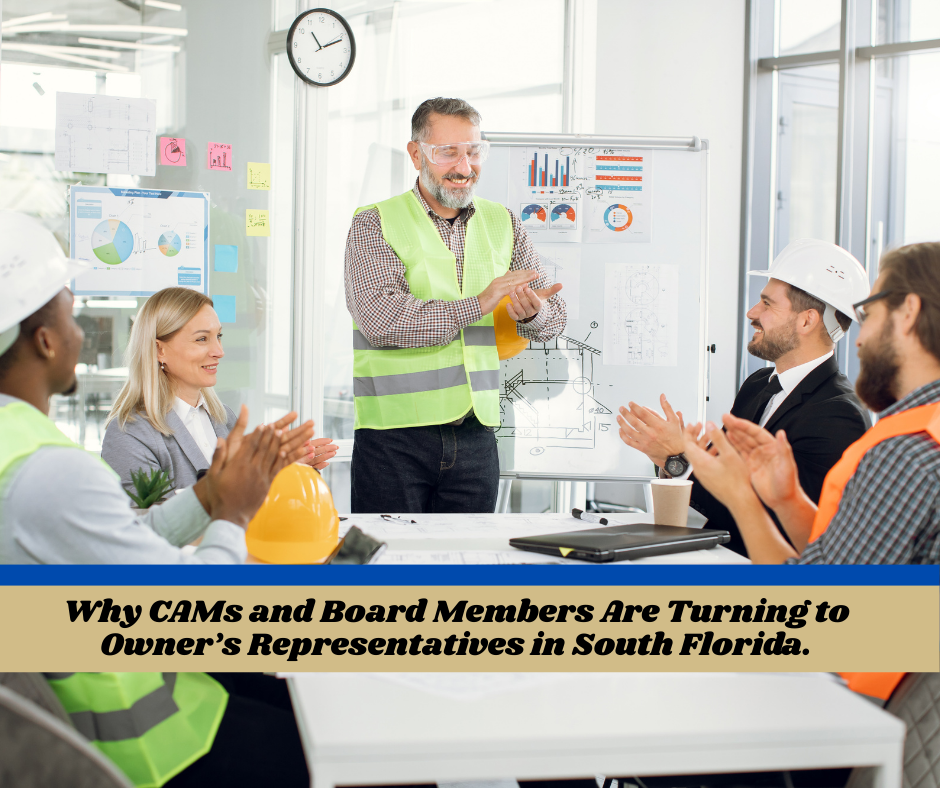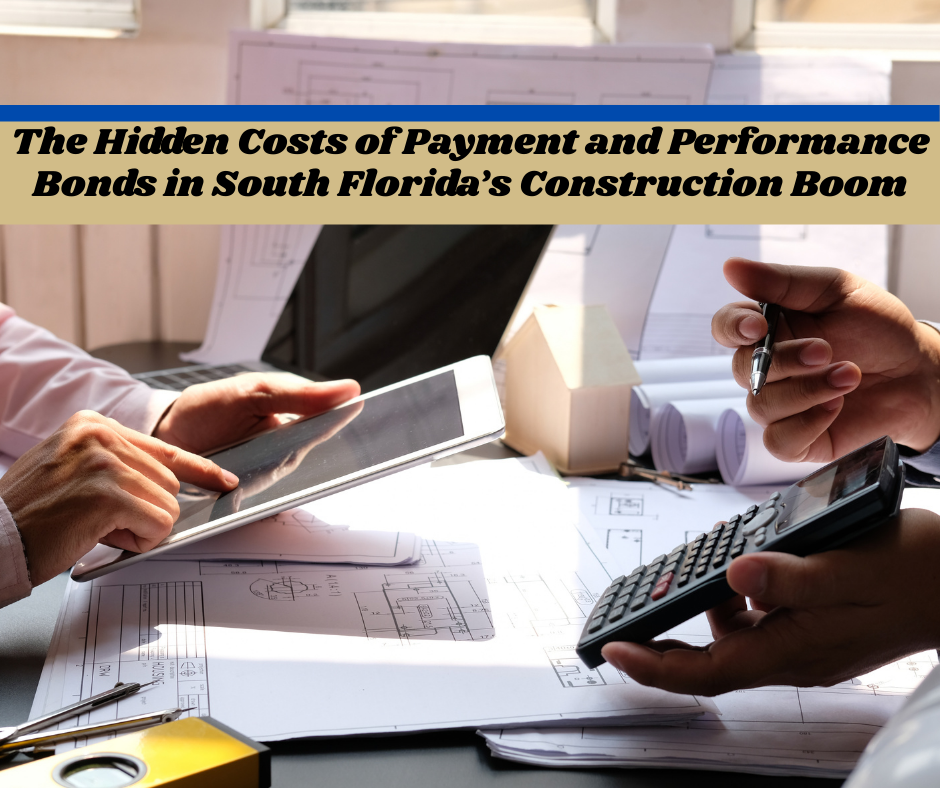Building the Right Team Before You Begin Any Capital Improvement Project

When it comes to capital improvement projects—especially large-scale exterior renovations or concrete restoration—success begins long before the first hammer swings. The single most important factor that determines whether a project finishes on time, within budget, and without chaos is the quality of the team you assemble at the start.
Too often, boards or associations try to save money by cutting corners on consultants or choosing team members solely based on price. But as those of us who’ve managed these projects for decades can attest, the lowest bid rarely equals the lowest cost in the long run.
Why Cutting Corners Up Front Costs You Later
When a project starts without the right professionals—or with underqualified or underpriced ones—the consequences almost always surface mid-project. Scopes expand. Change orders pile up. Payment applications get messy. Schedules slip. Communication breaks down. And what began as a $2 million project can easily balloon into $10 million, leaving the board scrambling for additional financing and, in many cases, halting work while experts are brought in to fix what should have been done right from the beginning.
A well-qualified, properly structured team minimizes this risk dramatically. Investing in experienced professionals up front not only reduces uncertainty but also protects your association legally, financially, and logistically throughout the life of the project.
The Core Project Team
For major capital improvement projects, a properly structured team generally includes at least four key players:
1. Owner’s Representative
The owner’s rep acts as the board’s and management’s advocate throughout the project. They are your “eyes and ears” in the field, ensuring that your best interests are represented at every stage—from planning and procurement to construction and closeout.
- They help assemble the right consultants and contractors.
- They review change orders, pay applications, and schedules for accuracy and fairness.
- They monitor the work and hold all parties accountable.
- They host regular progress meetings, keeping everyone aligned and ensuring issues are identified early.
An experienced owner’s rep can be the difference between a smooth, well-managed project and one that unravels under poor coordination or unchecked costs.\
2. Engineer of Record
The engineer provides the technical backbone of the project—drawings, specifications, inspections, and oversight. Their role ensures that all repairs are structurally sound, code-compliant, and properly documented. Depending on the project’s nature, specialty engineers may also be needed, such as:
- Structural engineers for concrete restoration and façade work.
- MEP engineers (mechanical, electrical, plumbing) for building systems.
- Geotechnical consultants for soil and foundation investigations.
- Materials testing laboratories for sampling and analysis.
3. General Contractor
The general contractor executes the physical work and manages subcontractors. They’re responsible for ensuring construction meets the engineer’s design intent and schedule.
At Overton Construction & Consulting, we specialize in exterior, façade, and concrete restoration projects across Florida. We hold a Florida Certified General Contractor license as well as a Florida Roofing license, allowing us to provide complete envelope restoration solutions—from concrete repair and waterproofing to roofing and structural remediation.
4. General Counsel (Construction Attorney)
The general counsel’s role begins before the first contract is signed. Having a construction law attorney involved early ensures your agreements include critical protections:
- Defined unit pricing and change order procedures
- Performance and payment bond requirements
- Liquidated damages clauses
- Payment terms that align with verified progress
A good contract can prevent disputes before they happen—and protect your association if they do.
Sequencing the Right Way
Ideally, your first hire should be the Owner’s Representative. Their expertise will help you identify qualified engineers to prepare the drawings, specifications, and permit sets. Once the engineer’s documents are complete, the owner’s rep can develop a comprehensive RFP manual—including clearly defined quantities and scopes—for contractors to bid on.
That’s a crucial point: accurate quantities and clearly defined scopes are the foundation of a fair, competitive bidding process. Without them, you’re inviting guesswork, inflated bids, and endless change orders.
Once the RFP process is complete and the contractor is selected, the engineer of record and owner’s rep remain engaged during construction for inspections, pay app review, schedule tracking, and issue resolution.
The Cost of Getting It Wrong
Over the years, I’ve seen projects go sideways for one common reason: the wrong team or missing team members. Boards sometimes proceed with incomplete or vague scopes of work, missing quantities, or poorly defined bid packages. The result? Contractors make assumptions, costs fluctuate, and the association bears the financial fallout.
Without an owner’s rep or experienced counsel, the board may not have the expertise to question change orders or verify quantities. The result can be catastrophic: a project that doubles—or even triples—in cost, extended schedules, and endless disputes.
The Bottom Line
Spending a little more on the right professionals up front—an experienced owner’s rep, a qualified engineer, a reputable contractor, and a knowledgeable construction attorney—is not an expense; it’s an investment in your project’s success.
These professionals bring experience, accountability, and structure to what is often one of the most complex undertakings your association will ever face. With the right team in place, you can expect fewer surprises, a more accurate scope, predictable costs, and a project that finishes as intended—on time and within budget.
About the Author
Paul Overton is a Florida Certified General Contractor and Owner’s Representative with decades of experience managing complex exterior restoration and capital improvement projects throughout Florida. He is also a consulting expert specializing in scope of work creation, causation analysis, repair protocols, and expert testimony.
His firm,
Overton Construction & Consulting, holds both
General Contractor and
Roofing Contractor licenses and specializes in
exterior, façade, and concrete restoration projects for condominium and HOA associations. The firm provides expert owner representation, forensic investigations, and construction management services designed to protect associations’ interests and ensure successful project outcomes.







